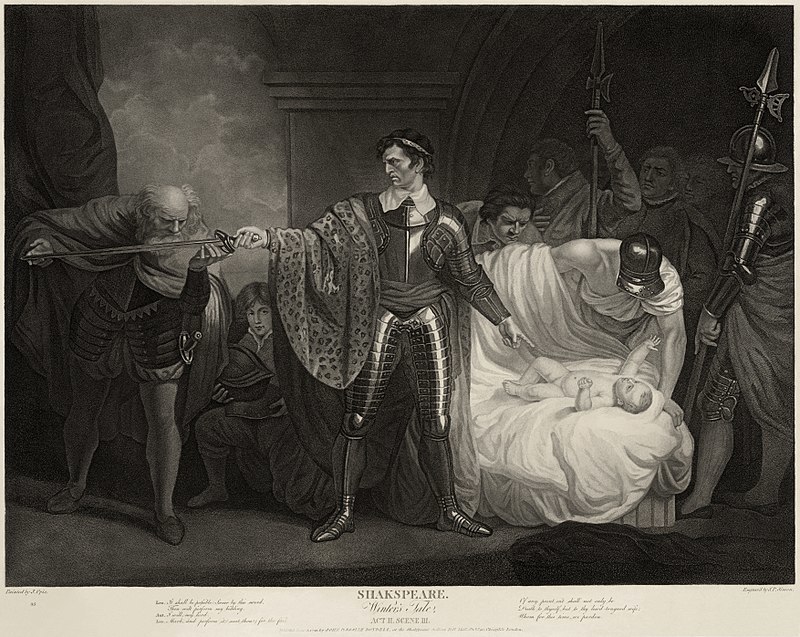The Winter's Tale
The Winter's Tale is a play by William Shakespeare originally published in the First Folio of 1623. Although it was grouped among the comedies, some modern editors have relabelled the play as one of Shakespeare's late romances. Some critics consider it to be one of Shakespeare's "problem plays" because the first three acts are filled with intense psychological drama, while the last two acts are comedic and supply a happy ending.
The play has been intermittently popular, revived in productions in various forms and adaptations by some of the leading theatre practitioners in Shakespearean performance history, beginning after a long interval with David Garrick in his adaptation Florizel and Perdita (first performed in 1753 and published in 1756). The Winter's Tale was revived again in the 19th century, when the fourth "pastoral" act was widely popular. In the second half of the 20th century, The Winter's Tale in its entirety, and drawn largely from the First Folio text, was often performed, with varying degrees of success.

Date and text
The play was not published until the First Folio of 1623. In spite of tentative early datings (see below), most critics believe the play is one of Shakespeare's later works, possibly written in 1610 or 1611. A 1611 date is suggested by an apparent connection with Ben Jonson's Masque of Oberon, performed at Court 1 January 1611, in which appears a dance of ten or twelve satyrs; The Winter's Tale includes a dance of twelve men costumed as satyrs, and the servant announcing their entry says "one three of them, by their own report, sir, hath danc'd before the King." (IV.iv.337-38). Arden Shakespeare editor J.H.P. Pafford found that "the language, style, and spirit of the play all point to a late date. The tangled speech, the packed sentences, speeches which begin and end in the middle of a line, and the high percentage of light and weak endings are all marks of Shakespeare's writing at the end of his career. But of more importance than a verse test is the similarity of the last plays in spirit and themes."
In the late 18th century, Edmond Malone suggested that a "book" listed in the Stationers' Register on 22 May 1594, under the title "a Wynters nightes pastime", might have been Shakespeare's, though no copy of it is known. In 1933, Dr. Samuel A. Tannenbaum wrote that Malone subsequently "seems to have assigned it to 1604; later still, to 1613; and finally he settled on 1610–11. Hunter assigned it to about 1605."


















0 comments
Sign in or create a free account